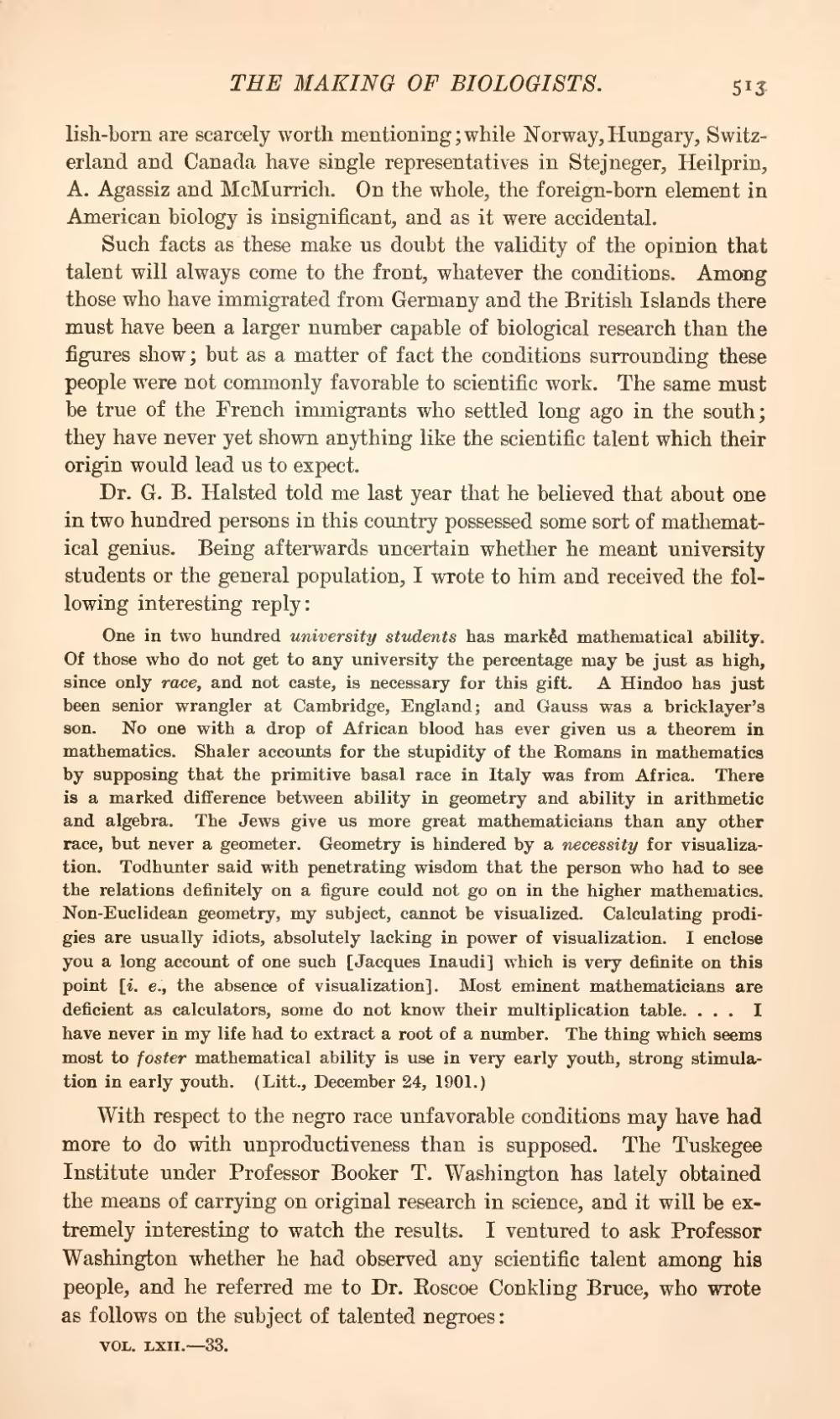lish-born are scarcely worth mentioning; while Norway, Hungary, Switzerland and Canada have single representatives in Stejneger, Heilprin, A. Agassiz and McMurrich. On the whole, the foreign-born element in American biology is insignificant, and as it were accidental.
Such facts as these make us doubt the validity of the opinion that talent will always come to the front, whatever the conditions. Among those who have immigrated from Germany and the British Islands there must have been a larger number capable of biological research than the figures show; but as a matter of fact the conditions surrounding these people were not commonly favorable to scientific work. The same must be true of the French immigrants who settled long ago in the south; they have never yet shown anything like the scientific talent which their origin would lead us to expect.
Dr. G-. B. Halsted told me last year that he believed that about one in two hundred persons in this country possessed some sort of mathematical genius. Being afterwards uncertain whether he meant university students or the general population, I wrote to him and received the following interesting reply:
With respect to the negro race unfavorable conditions may have had more to do with unproductiveness than is supposed. The Tuskegee Institute under Professor Booker T. Washington has lately obtained the means of carrying on original research in science, and it will be extremely interesting to watch the results. I ventured to ask Professor Washington whether he had observed any scientific talent among his people, and he referred me to Dr. Roscoe Conkling Bruce, who wrote as follows on the subject of talented negroes:

